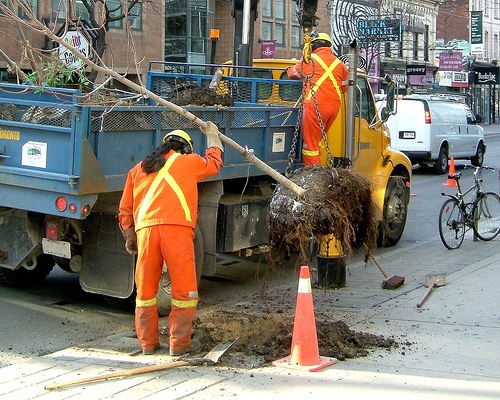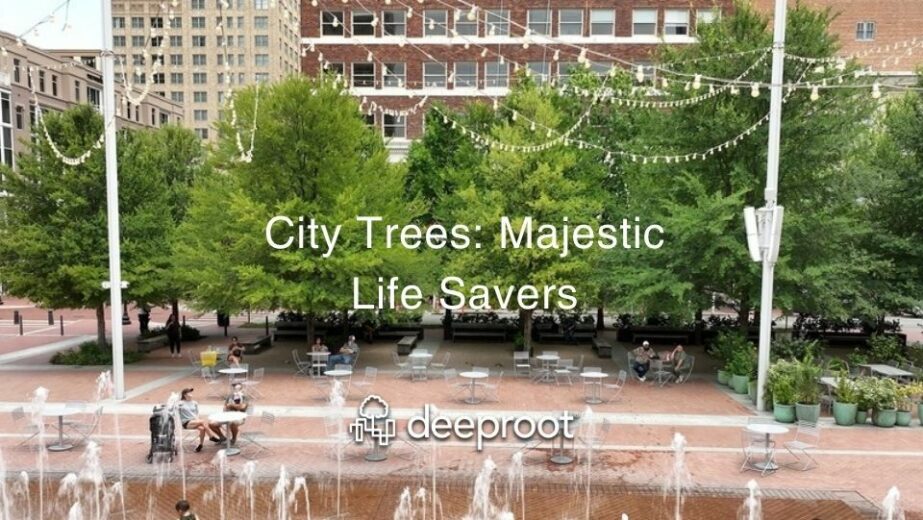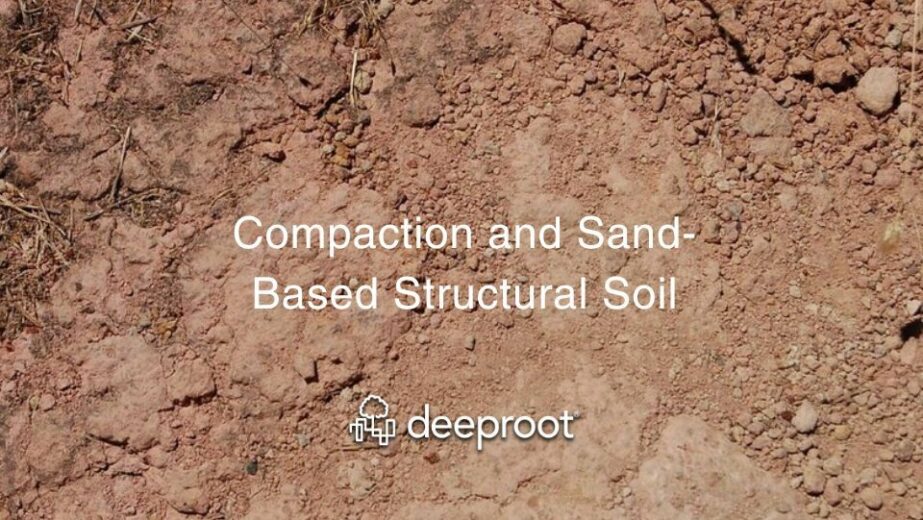
Every so often I’ll read a take on an important and relevant topic that means well, but just leaves me scratching my head. Such was the case with a recent article in Toronto’s The Star about planting street trees. Let’s start with the title, “Tree-Lined Streets Not Worth the Cost, Arborists Say” — eeeek!
Fortunately and unfortunately, I think the title might be the worst part of the article.
But there is some good information included in the rest of the piece, and I want to mention it because I feel like I understand what it’s trying to say (even if it has a crazy title and is somewhat confusingly structured):
- Trees in cities generally have to fight to survive due to inhospitable growing conditions
- Most urban trees have extremely short lifespans (<10 years)
- Street trees planted using traditional methods will not survive long enough to make any appreciable ecological contribution or addition to the overall percentage of urban canopy cover
- It is not enough to dig a small hole and put a tree in it. Trees need to be PLANNED FOR in addition to being carefully planted and thoughtfully maintained (watered, pruned, etc.)
- The City of Toronto is willing to try new things, including implementing new planting technologies (such as Silva Cells — sorry, shameless self-promotion!) to see if they can improve their urban canopy over the long term
Now for the bad:
- Like I said above, I think the title may be the worst part of this whole article. Probably someone, somewhere, did say “it’s not worth it to plant trees on city streets [because typical growing conditions will prevent them from thriving],” but I struggle to believe that this is the prevailing attitude among arborists and tree advocates.
- The opening paragraph describes the desire to have beautiful trees “at any cost.” Really? ANY COST? This I take issue with. Considering your average developer puts almost no money, time or effort in to thoughtfully planning for trees, this statement rings very false. A tree costs way less, for example, than an engineered “shade structure” that mimic a tree’s function.
If a majority of tree advocates and arborists really did say that we shouldn’t bother planting street trees then I’m extremely disappointed. I can understand (very well) how discouraging it is to advocate for policies that prioritize trees and an improved urban canopy and yet to feel that nothing is changing. I share in the outrage over our city trees that limp along, year after year, in a slow state of inevitable decline. But saying that it’s not worth it — when, it’s important to note, we have the tools to do do better — well, that’s frustrating. Why don’t we just all go live underground while we’re at it?
Whether it’s the Silva Cell or good old cantilevered sidewalks, (affordable) technologies exist to allow us to grow 40, 50, 60+ year old street trees that can have a tremendous environmental and aesthetic impact in our cities and towns. The challenge we face is getting the people in charge to move away from the business-as-usual model of tree planning, planting, and care.
Unlike light poles and benches, city trees are not a sunk cost. In fact, the myriad functions a tree provides — cleaning air and water, reducing temperatures, intercepting rain, reducing flooding and erosion, among others — all improve over time as the tree grows and matures. And of course the mere presence of trees actually adds value to the sale prices of homes and businesses.
The challenge of how to grow healthy, long-lived trees in cities is not going away. More and more people live in cities. More and more of the planet is being developed, paved, parked, and spit shined. How else to put it? This issue matters. The 43 comments in response to this article are a testament to the imperative that we make an honest effort to meet the challenge.
Related:
BlogTo Asks, “Will Silva Cells Improve Toronto’s Urban Forest?”
(Image: “A city worker replaces a tree on Queen Street West” in Toronto from Portfolium)





Leave Your Comment